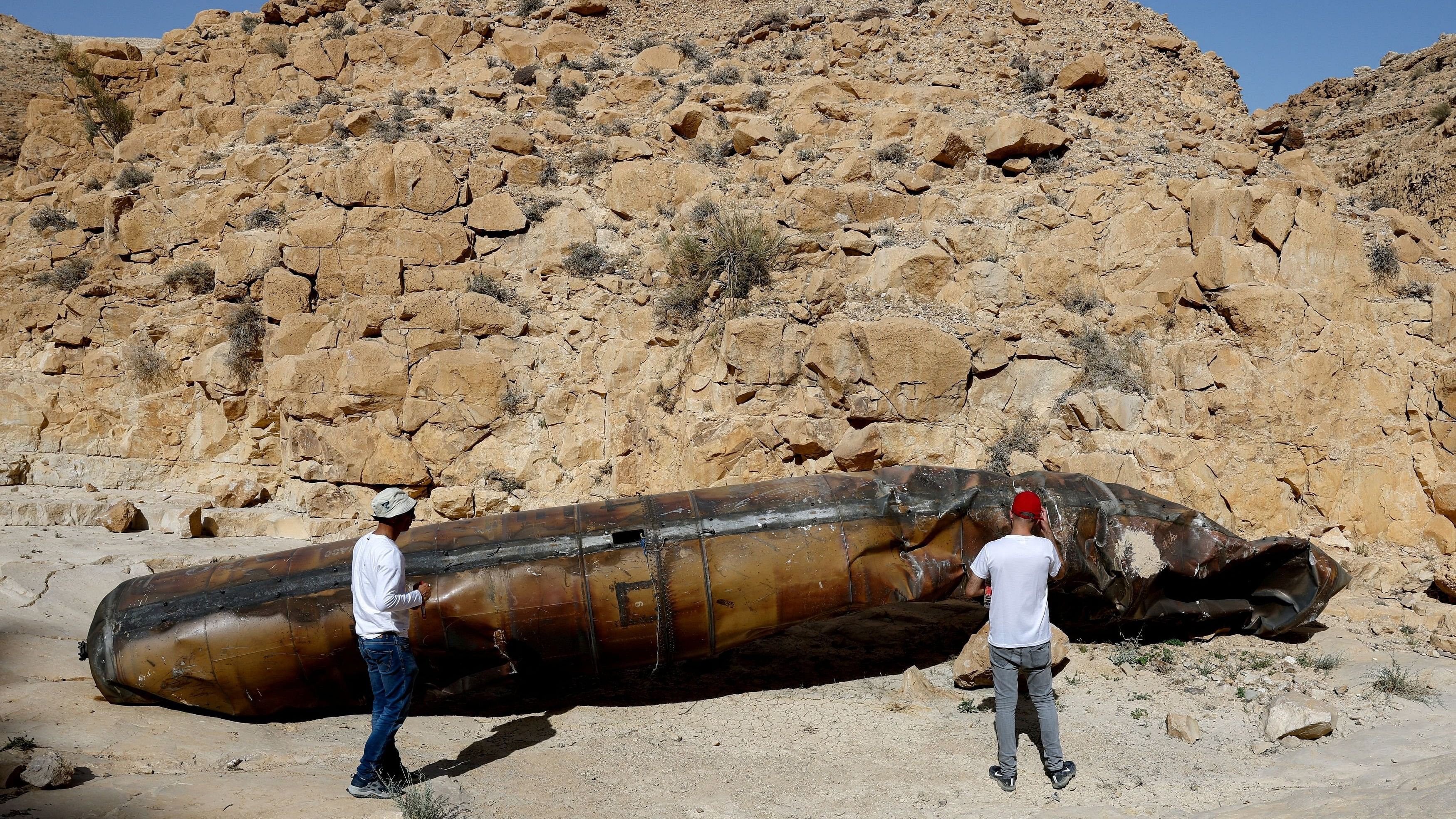
Members of military personnel in civilian clothing inspect apparent remains of a ballistic missile lying in the desert, following a massive missile and drone attack by Iran on Israel, near the southern city of Arad, Israel April 24, 2024.
Credit: Reuters Photo
A scenario of a sustained flare-up in geopolitical tensions in the Middle East, and the consequent increase in crude oil prices, will negatively impact India’s macros, including current account deficit, foreign investment inflows, inflation and trade, research and ratings agency ICRA said on Wednesday.
“Escalation of geopolitical tensions in the Middle East contributed to the recent spike in crude oil prices. While the situation remains fluid at present, a further step up in tensions between Israel and Iran could impact various sectors of the Indian economy,” ICRA said in a report, drafted by its chief economist Aditi Nayar and her team
The report said that a $10 per barrel increase in crude prices will raise the current account deficit by 0.3%, while the conflict itself will impact the rupee-dollar exchange rate and hence impact FPI inflows into India.
“An escalation of the conflict would also exert pressure on the rupee-dollar exchange rate and may impact Foreign Portfolio Investors (FPI) inflows to India. Additionally, this would pose upside risks to our wholesale inflation, and to a smaller extent to our retail inflation projections for FY2025,” the report stated, adding that a sustained surge in crude oil prices could also exert a drag on GDP growth.
Current account deficit is when the combined incoming trade of goods and services and remittances exceeds the amount it imports. Any increase in crude oil prices would increase India’s petroleum import bill, and hence the current account deficit. Benchmark Brent crude prices were hovering around the $88 a barrel mark on Wednesday. Last week, they had crossed $90 for a brief period, after reports that Israeli missiles hit Iranian targets.
On trade, the report stated that following western sanctions on crude oil, Iran’s share in the total Indian merchandise imports declined to below 1% in FY2023 from the average of 2-3% seen in the decade before FY2019. However, Iran remains a major buyer of Indian basmati and tea, and hence exports could be impacted if the conflict escalates.
“Shipments may witness delay in transit and increase in cost if the escalation of the conflict sustains, affecting trade through the Suez
Canal,” it stated.